Organic Chemistry Course Outline
Organic Chemistry Course Outline - Introduction and review chapter 1 outline Web 5.12 is an introduction to organic chemistry, focusing primarily on the basic principles to understand the structure and reactivity of organic molecules. At the end of the semester, students will be able to recognize common organic functional groups and name organic molecules using. Bonding, structure and nomenclature, stereochemistry, organic chemical reactions and mechanisms. Web of key concepts in organic chemistry including: This resource includes an outline of part 1 of the course, on stereochemistry, isomers, chirality, nomenclature, relative reactivity, asymmetric synthesis, measurement. This class will continue coverage of fundamental concepts of organic chemistry, including infrared (ir) and nuclear magnetic resonance. Description organic chemistry is the study of covalently bonded molecules with a carbon backbone. Web this subject deals primarily with the basic principles to understand the structure and reactivity of organic molecules. Web course information course objectives: Web 5.12 is an introduction to organic chemistry, focusing primarily on the basic principles to understand the structure and reactivity of organic molecules. Web this subject deals primarily with the basic principles to understand the structure and reactivity of organic molecules. More info syllabus calendar assignments exams lecture handouts syllabus. This class will continue coverage of fundamental concepts of organic. More info syllabus calendar assignments exams lecture handouts syllabus. Chem 350 comprises the following 16 units. A continuation of chm 270. This resource contains the outline of the chapters for the first half of. Organic molecules are the vast majority of. Alkyl and aryl halides, alcohols and phenols, ethers and epoxides, carboxylic acids, esters,. Web a brief introduction to organic chemistry. This course provides a systematic study of the theories, principles, and techniques of organic chemistry. This class will continue coverage of fundamental concepts of organic chemistry, including infrared (ir) and nuclear magnetic resonance. This resource contains the outline of the. Alkyl and aryl halides, alcohols and phenols, ethers and epoxides, carboxylic acids, esters,. Emphasis is on substitution and elimination reactions. More info syllabus calendar assignments exams lecture handouts syllabus. A continuation of chm 270. This resource includes an outline of part 1 of the course, on stereochemistry, isomers, chirality, nomenclature, relative reactivity, asymmetric synthesis, measurement. This course provides a systematic study of the theories, principles, and techniques of organic chemistry. A continuation of chm 270. More info syllabus calendar assignments exams lecture handouts syllabus. Web following an introduction to covalent bonding and isomerism, you move into a detailed discussion of the molecular structures and properties of various classes of organic and. What is this course. Web 5.12 is an introduction to organic chemistry, focusing primarily on the basic principles to understand the structure and reactivity of organic molecules. Web of key concepts in organic chemistry including: Bonding, structure and nomenclature, stereochemistry, organic chemical reactions and mechanisms. Web course information course objectives: What is this course about? Web of key concepts in organic chemistry including: This class will continue coverage of fundamental concepts of organic chemistry, including infrared (ir) and nuclear magnetic resonance. Web 5.12 is an introduction to organic chemistry, focusing primarily on the basic principles to understand the structure and reactivity of organic molecules. A continuation of chm 270. Web following an introduction to covalent. Web following an introduction to covalent bonding and isomerism, you move into a detailed discussion of the molecular structures and properties of various classes of organic and. General information organic chemistry i (chem 221) 3 credits, fall 2019, section 51 tuesday/thursday. Organic chemistry i (wenthold) chapter 1: Web this subject deals primarily with the basic principles to understand the structure. Description organic chemistry is the study of covalently bonded molecules with a carbon backbone. Web this subject deals primarily with the basic principles to understand the structure and reactivity of organic molecules. What is this course about? Organic chemistry i (wenthold) chapter 1: This course provides a systematic study of the theories, principles, and techniques of organic chemistry. Web course information course objectives: Bonding, structure and nomenclature, stereochemistry, organic chemical reactions and mechanisms. More info syllabus calendar assignments exams lecture handouts syllabus. Web a brief introduction to organic chemistry. Alkyl and aryl halides, alcohols and phenols, ethers and epoxides, carboxylic acids, esters,. Web of key concepts in organic chemistry including: Emphasis is on substitution and elimination reactions. This resource includes an outline of part 1 of the course, on stereochemistry, isomers, chirality, nomenclature, relative reactivity, asymmetric synthesis, measurement. This class will continue coverage of fundamental concepts of organic chemistry, including infrared (ir) and nuclear magnetic resonance. Web course information course objectives: Alkyl and aryl halides, alcohols and phenols, ethers and epoxides, carboxylic acids, esters,. General information organic chemistry i (chem 221) 3 credits, fall 2019, section 51 tuesday/thursday. Web course information course objectives: At the end of the semester, students will be able to recognize common organic functional groups and name organic molecules using. Description organic chemistry is the study of covalently bonded molecules with a carbon backbone. This resource contains the outline of the chapters for the first half of. Organic molecules are the vast majority of. Web following an introduction to covalent bonding and isomerism, you move into a detailed discussion of the molecular structures and properties of various classes of organic and. Organic chemistry i (wenthold) chapter 1: Chem 350 comprises the following 16 units. This course provides a systematic study of the theories, principles, and techniques of organic chemistry.
Organic Chemistry Worksheet With Answers

Chem 2122 Winter Outline CHEM 2122 Experimental Organic Chemistry
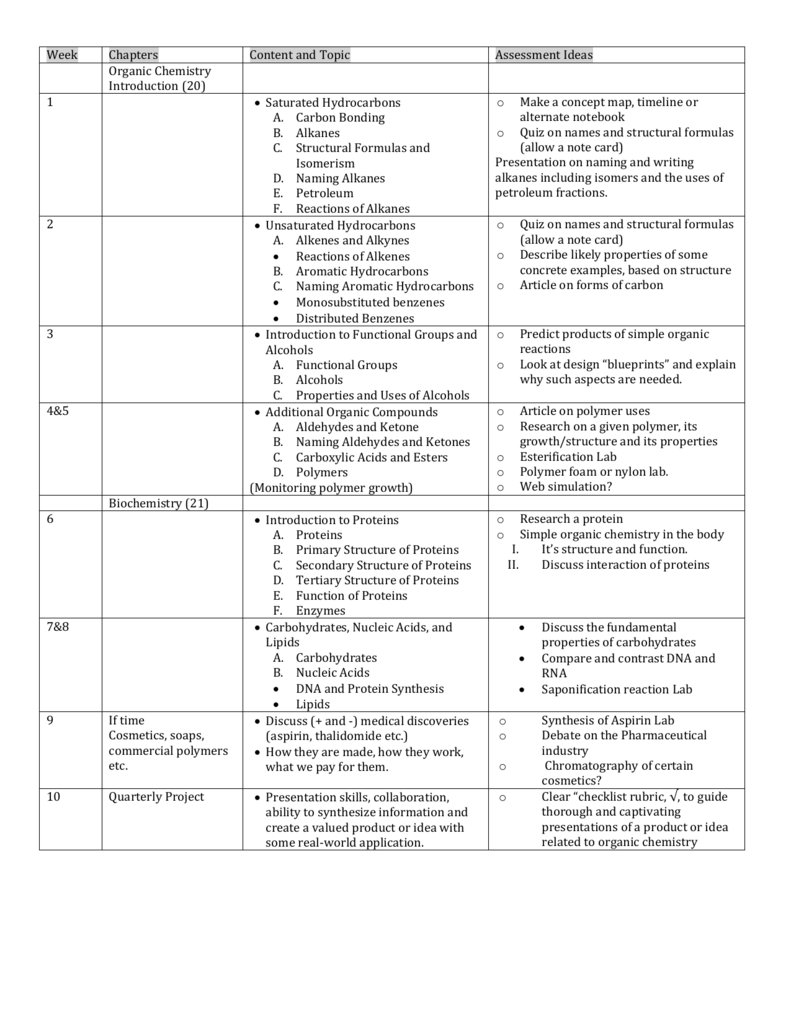
Organic Outline

and Organic Chemistry Course outline AND ORGANIC
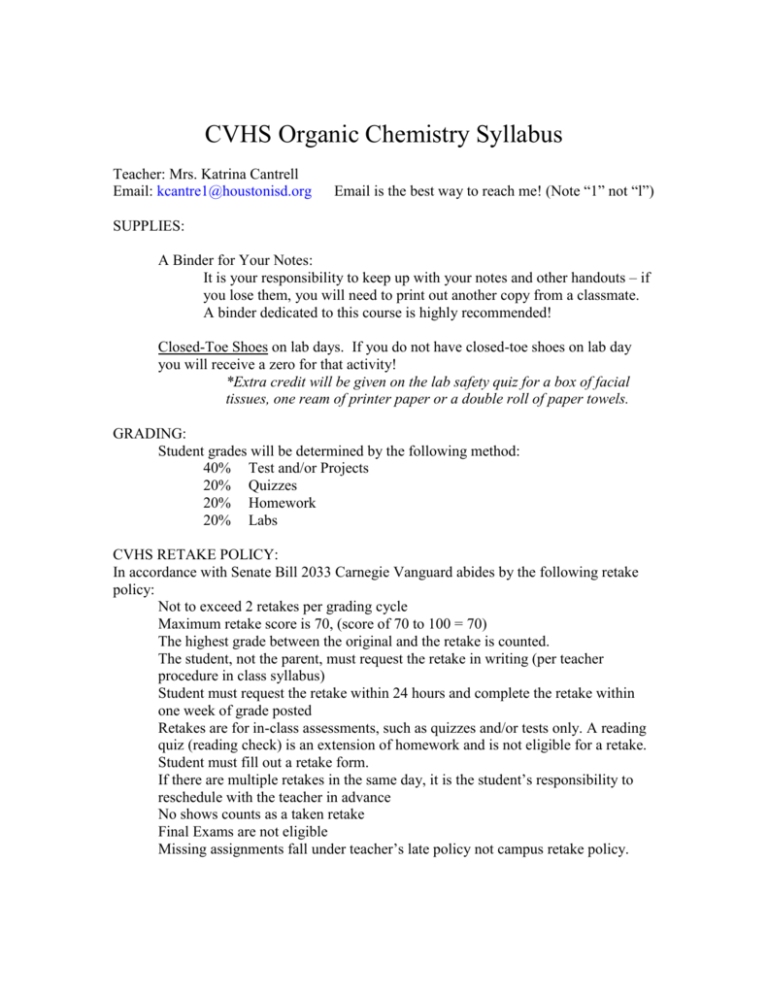
Organic Chemistry Syllabus and Course Outline
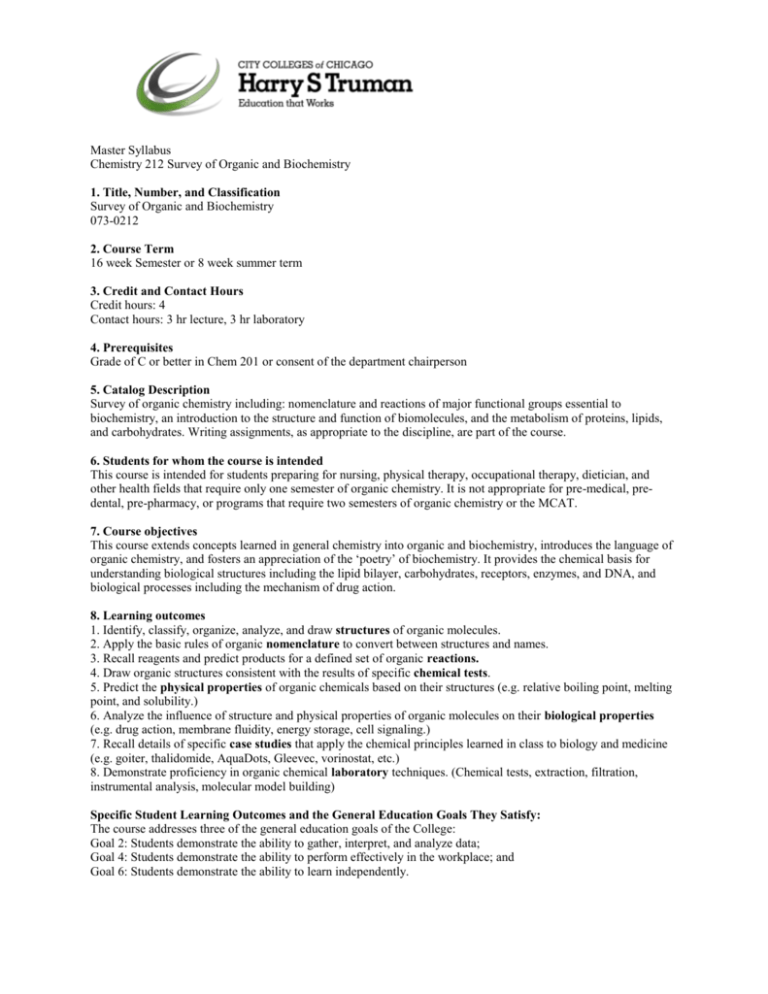
Organic Chemistry I
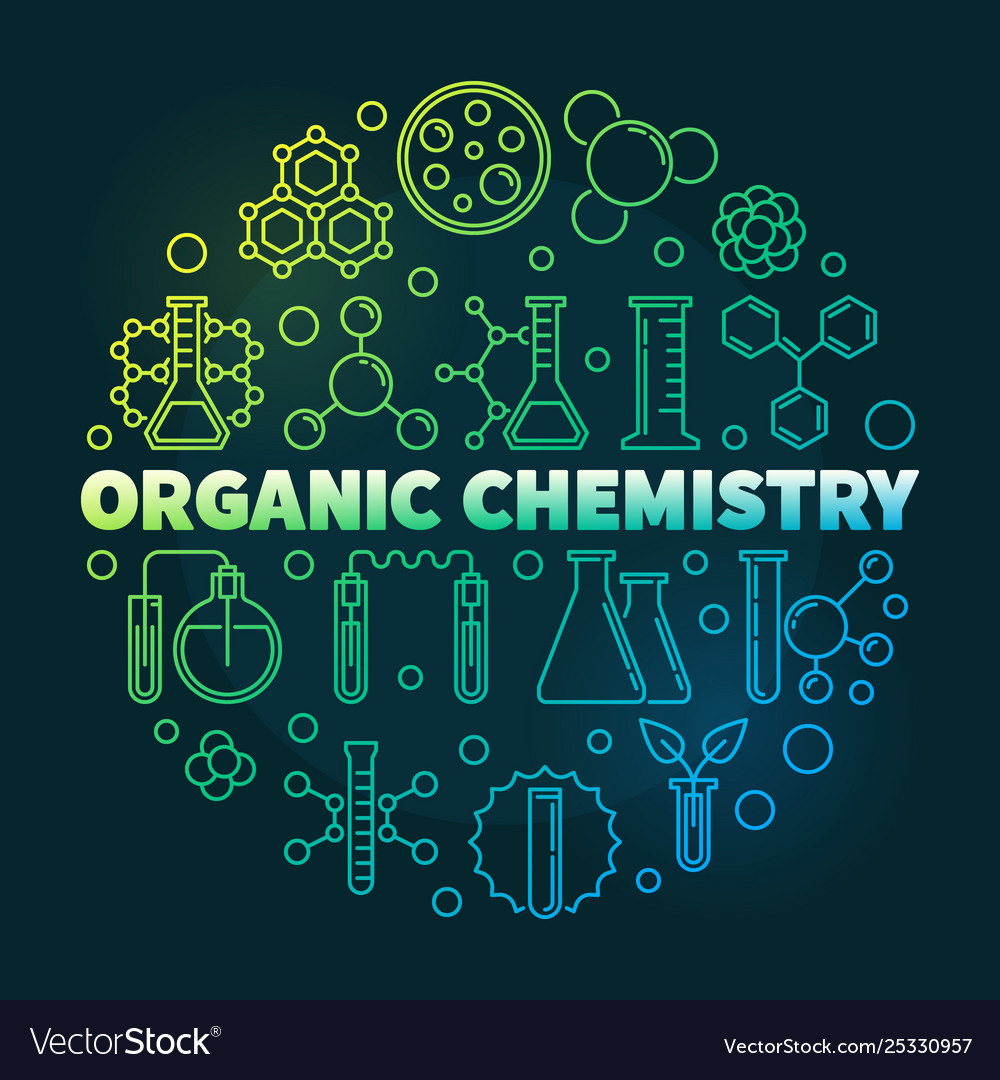
Organic chemistry colored outline round Royalty Free Vector

FDSC 230 Organic Chemistry Course Outline FACULTY OF AGRICULTURAL
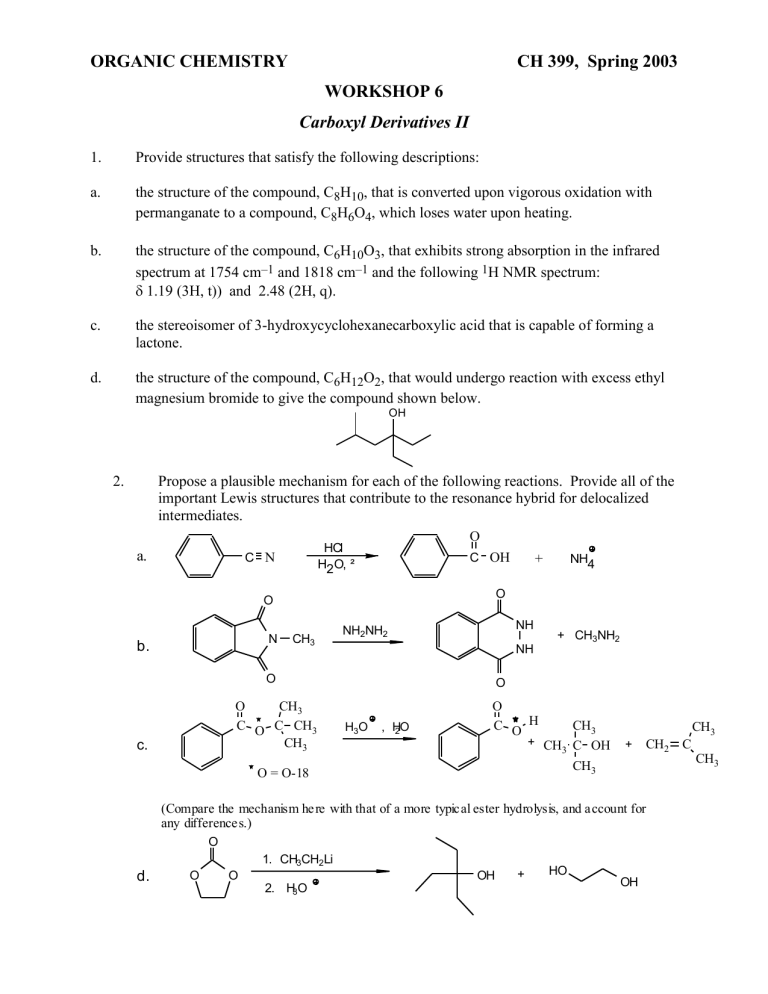
ORGANIC CHEMISTRY

Coursework Organic Chemistry Graduate Program UT Southwestern
Introduction And Review Chapter 1 Outline
Web This Subject Deals Primarily With The Basic Principles To Understand The Structure And Reactivity Of Organic Molecules.
Web A Brief Introduction To Organic Chemistry.
Bonding, Structure And Nomenclature, Stereochemistry, Organic Chemical Reactions And Mechanisms.
Related Post: